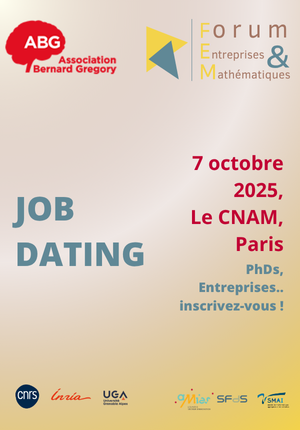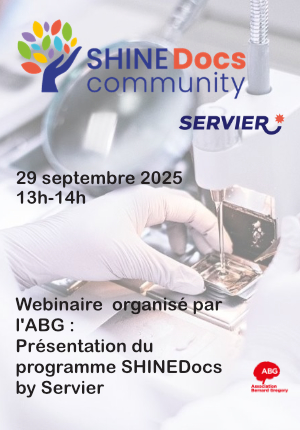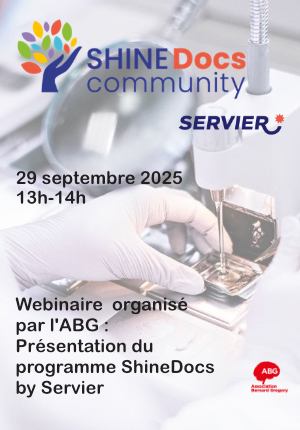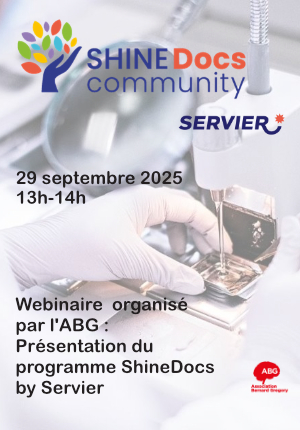La valeur du vivant à l'heure de la bioéconomie circulaire et des biotechnologies numérisées : entre production, données et artificialisation. // The value of life in the age of the circular bioeconomy and digitized biotechnologies: between production, da
|
ABG-132475
ADUM-66522 |
Sujet de Thèse | |
| 12/06/2025 | Autre financement public |
Nîmes Université
NIMES Cédex 1 - Occitanie - France
La valeur du vivant à l'heure de la bioéconomie circulaire et des biotechnologies numérisées : entre production, données et artificialisation. // The value of life in the age of the circular bioeconomy and digitized biotechnologies: between production, da
biotechnologie, philosophie, science société, éthique, transition ecologique
biotechnology, philosophy, science society, ethics, ecological transition
biotechnology, philosophy, science society, ethics, ecological transition
Description du sujet
Ce projet de thèse interroge la notion de valeur du vivant dans un contexte marqué par la
montée en puissance des biotechnologies numérisées et de l'intelligence artificielle,
désormais au coeur des logiques de production et d'innovation bioéconomiques. En croisant
les sciences du vivant et les sciences humaines et sociales, il vise à analyser comment
l'artificialisation croissante du vivant transforme nos manières de le concevoir, de l'exploiter
et de l'évaluer. Mobilisant des outils issus de la philosophie des sciences, de la sociologie des
techniques et des études critiques sur les technosciences, la thèse explore les enjeux
conceptuels et éthiques de cette mutation.
------------------------------------------------------------------------------------------------------------------------------------------------------------------------
------------------------------------------------------------------------------------------------------------------------------------------------------------------------
This thesis project examines the notion of the value of living matter in a context marked by the
rise in power of digitized biotechnologies and artificial intelligence,
now at the heart of bioeconomic production and innovation logics. By crossing
the life sciences and the humanities and social sciences, it aims to analyze how
the increasing artificialization of living organisms is transforming the way we design, exploit
and evaluate them. Using tools drawn from the philosophy of science, the sociology of
techniques and critical studies of technoscience, the thesis explores the
conceptual and ethical issues at stake in this mutation.
------------------------------------------------------------------------------------------------------------------------------------------------------------------------
------------------------------------------------------------------------------------------------------------------------------------------------------------------------
Début de la thèse : 01/12/2025
montée en puissance des biotechnologies numérisées et de l'intelligence artificielle,
désormais au coeur des logiques de production et d'innovation bioéconomiques. En croisant
les sciences du vivant et les sciences humaines et sociales, il vise à analyser comment
l'artificialisation croissante du vivant transforme nos manières de le concevoir, de l'exploiter
et de l'évaluer. Mobilisant des outils issus de la philosophie des sciences, de la sociologie des
techniques et des études critiques sur les technosciences, la thèse explore les enjeux
conceptuels et éthiques de cette mutation.
------------------------------------------------------------------------------------------------------------------------------------------------------------------------
------------------------------------------------------------------------------------------------------------------------------------------------------------------------
This thesis project examines the notion of the value of living matter in a context marked by the
rise in power of digitized biotechnologies and artificial intelligence,
now at the heart of bioeconomic production and innovation logics. By crossing
the life sciences and the humanities and social sciences, it aims to analyze how
the increasing artificialization of living organisms is transforming the way we design, exploit
and evaluate them. Using tools drawn from the philosophy of science, the sociology of
techniques and critical studies of technoscience, the thesis explores the
conceptual and ethical issues at stake in this mutation.
------------------------------------------------------------------------------------------------------------------------------------------------------------------------
------------------------------------------------------------------------------------------------------------------------------------------------------------------------
Début de la thèse : 01/12/2025
Nature du financement
Autre financement public
Précisions sur le financement
ANR Financement d'Agences de financement de la recherche
Présentation établissement et labo d'accueil
Nîmes Université
Etablissement délivrant le doctorat
Nîmes Université
Ecole doctorale
583 Risques et Société
Profil du candidat
Nous recherchons un(e) doctorant(e) capable d'investir un sujet transdisciplinaire à fort enjeu
critique, situé à la jonction entre biotechnologies, bioéconomie et sciences humaines et
sociales, en particulier la philosophie des sciences. Le sujet s'inscrit dans un cadre SHS, mais
avec un appui scientifique fort : il nécessite une excellente compréhension des logiques de
production du vivant, tout en exigeant une capacité à problématiser, conceptualiser et
analyser ces logiques dans une perspective réflexive, critique et interdisciplinaire.
Compétences scientifiques attendues :
• Formation initiale en biologie, biotechnologies, bio-ingénierie ou domaines associés,
incluant éventuellement l'IA appliquée au vivant (niveau Master ou équivalent requis).
• Bonne compréhension des pratiques de laboratoire, des enjeux de biologie de
synthèse, de génie génétique et de gestion des données biologiques,
• Connaissances (même de base) des outils numériques utilisés en biotechnologies
(modélisation, bio-informatique, IA) constituent un atout.
Compétences en SHS attendues :
• Intérêt marqué pour les approches en philosophie des sciences, sociologie des
technosciences, ou épistémologie ;
• Capacité à se former à des corpus théoriques et à adopter une posture critique sur les
usages et implications des innovations scientifiques ;
• Aisance rédactionnelle, curiosité intellectuelle, autonomie de réflexion.
We are looking for a PhD student capable of tackling a high-stakes transdisciplinary subject critical, located at the junction between biotechnologies, bioeconomics and the humanities and social sciences, in particular the philosophy of science. The subject falls within an SHS framework, but with strong scientific support: it requires an excellent understanding of the logics of production of living matter, while demanding an ability to problematize, conceptualize and analyze these logics from a reflexive, critical and interdisciplinary perspective. Expected scientific skills: - Initial training in biology, biotechnology, bioengineering or related fields, possibly including AI applied to life (Master's level or equivalent required). - Good understanding of laboratory practices, biology issues synthesis, genetic engineering and biological data management, - Knowledge (even basic) of digital tools used in biotechnologies (modeling, bioinformatics, AI) is an asset. SHS skills expected: - Strong interest in philosophy of science, sociology of technosciences, or epistemology; - Ability to learn theoretical corpuses and adopt a critical stance on the uses and implications of scientific innovations; - Excellent writing skills, intellectual curiosity and independent thinking.
We are looking for a PhD student capable of tackling a high-stakes transdisciplinary subject critical, located at the junction between biotechnologies, bioeconomics and the humanities and social sciences, in particular the philosophy of science. The subject falls within an SHS framework, but with strong scientific support: it requires an excellent understanding of the logics of production of living matter, while demanding an ability to problematize, conceptualize and analyze these logics from a reflexive, critical and interdisciplinary perspective. Expected scientific skills: - Initial training in biology, biotechnology, bioengineering or related fields, possibly including AI applied to life (Master's level or equivalent required). - Good understanding of laboratory practices, biology issues synthesis, genetic engineering and biological data management, - Knowledge (even basic) of digital tools used in biotechnologies (modeling, bioinformatics, AI) is an asset. SHS skills expected: - Strong interest in philosophy of science, sociology of technosciences, or epistemology; - Ability to learn theoretical corpuses and adopt a critical stance on the uses and implications of scientific innovations; - Excellent writing skills, intellectual curiosity and independent thinking.
17/11/2025
Postuler
Fermer
Vous avez déjà un compte ?
Nouvel utilisateur ?
Besoin d'informations sur l'ABG ?
Vous souhaitez recevoir nos infolettres ?
Découvrez nos adhérents
 PhDOOC
PhDOOC  Ifremer
Ifremer  MabDesign
MabDesign  ASNR - Autorité de sûreté nucléaire et de radioprotection - Siège
ASNR - Autorité de sûreté nucléaire et de radioprotection - Siège  ADEME
ADEME  MabDesign
MabDesign  Tecknowmetrix
Tecknowmetrix  Institut Sup'biotech de Paris
Institut Sup'biotech de Paris  Laboratoire National de Métrologie et d'Essais - LNE
Laboratoire National de Métrologie et d'Essais - LNE  Groupe AFNOR - Association française de normalisation
Groupe AFNOR - Association française de normalisation  ONERA - The French Aerospace Lab
ONERA - The French Aerospace Lab  ANRT
ANRT  Nokia Bell Labs France
Nokia Bell Labs France  SUEZ
SUEZ  CESI
CESI  CASDEN
CASDEN  TotalEnergies
TotalEnergies  Aérocentre, Pôle d'excellence régional
Aérocentre, Pôle d'excellence régional  Généthon
Généthon




